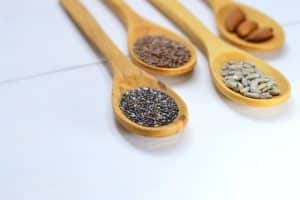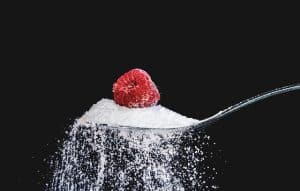Obesity is an issue many Americans face today; 50 percent of the population is obese. The pandemic had its fair share, and the average American gained 10-15 pounds. Obesity is caused by multiple factors including poor lifestyle habits, genetics, and medical conditions.
Despite obesity affecting half the population, it causes most adults to feel insecure or even ashamed. Worst of all, being overweight has a negative impact on one’s health. It increases the risk of diabetes, high blood pressure, cardiovascular diseases, cancers, inflammation, and infectious diseases. A weight-loss journey is difficult, especially now that there are many different weight loss programs, with new diet plans and exercise programs coming up daily.
Additionally, so many “experts” flaunt their bodies and assure their followers on their socials that their methods aid weight loss. You may try these weight loss methods from time to time, but none of them appear to work for you. Most people forget that healthy weight loss is more than just dieting; it is about making healthy lifestyle choices that include long-term changes in your dietary and physical activity habits.
A holistic approach addresses the myriad of factors that make it difficult to lose weight.
Start With A Holistic Diet
Eat Your Veggies
Cruciferous and green leafy vegetables contain minerals and vitamins that are essential for maintaining a healthy hormonal balance, which is critical for losing weight.
Consume one or two cups of plant-based foods every day. Examples are Swiss chard, lettuce, bok choy, arugula, spinach, and other dark leafy greens. A few examples of cruciferous vegetables are cauliflower, broccoli, brussels sprouts, cabbage, and kale. In addition, make an effort to increase fiber in your food intake. It will make you feel satiated and reduce your urge to overeat.
Raw foods contain digestive enzymes and nutrients that promote health. Canned foods lose approximately 50% of their nutrients, while freezing loses 20%-30%. Raw foods contain more fiber than cooked foods. Studies have shown that organic food tastes better.
Snack on unprocessed, unrefined, and healthy foods like apples, bananas, melons, carrots, or any of your favorite fruits or vegetables. This will not only help you lose weight, but it will also lower your risk of developing conditions such as cancer, heart disease, and type 2 diabetes, all while providing your body with the nutrients it requires to function.
Eat Whole Foods
These are food with high levels of vitamins, minerals, fiber, and antioxidants that you can easily find in your grocery store. They include nuts, seeds, fruits, and vegetables. Examples of seeds and nuts are pumpkin seeds, peanuts, cashews, almonds, linseeds, and sunflower seeds. These foods not only aid in weight loss, but also lower your risk of cancer, heart disease, and type 2 diabetes, all while providing your body with the nutrients it requires to function normally.
Limit Your Sugar Intake
Processed foods contain added hidden sugars, often called “empty calories”. This is because they are high in calories but are low in nutrients such as vitamins, minerals, adequate protein, healthy fats, and fiber. Though small amounts of added sugar are unlikely to cause weight gain, eating foods high in added sugars regularly may cause you to gain excess body fat more quickly. It also increases your risk of chronic diseases like type 2 diabetes, cardiovascular disease, and cancer.
Additionally, consuming a lot of sugar can lead to Insulin resistance, also called metabolic syndrome, when your cells stop properly responding to insulin, leading to high blood sugar levels and insulin levels. You can also try a few healthier alternatives such as stevia.
Hydrate
If you are tempted to go for snacks, drink some water instead. This is because the signals for hunger and thirst are sent to the same part of the brain. Dehydration often leads you to overeat. Additionally, drink a glass of warm water when you wake up.
You have probably heard that you should drink about 8 glasses of water per day, but the truth is that most people fall short of this goal. What you eat also contributes significantly to your fluids; therefore, you do not have to rely solely on the water to meet your fluid requirements. Many fruits and vegetables, such as watermelon and spinach, are almost entirely water by weight. Furthermore, beverages such as herbal teas make drinking water more interesting.
What Is The Most Efficient Diet For Weight Loss?
There are many weight-loss diets. Some focus on reducing your calories, others reducing your appetite and fat. Either way, there is no single healthy diet that is an all-size-fits-all when it comes to dieting.
What Else is Needed for a Successful Weight Loss Program?
It is recommended to visit a doctor or an expert in clinical practice for issues such as a diet plan, food choices, food sensitivities, weight management, integrative medicine, healthy habits, functional medicine, and overall health. Your healthcare provider will also order lab work to evaluate your thyroid function, hormones, blood sugar, and leptin levels. All of these need to be optimized for your best chance at sustained, long-term weight loss.
If you feel it is time to shed pounds or need information on achieving your goal weight, start by filling out a new patient form on our website and take the first step of your weight loss journey today!






